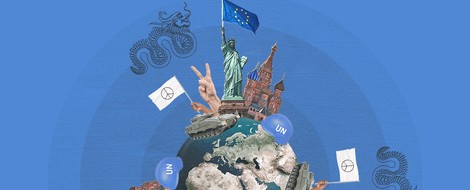Your podcast discovery platform
Curious minds select the most fascinating podcasts from around the world. Discover hand-piqd audio recommendations on your favorite topics.

piqer for: Boom and bust Globalization and politics Global finds
Associate Professor of Economics at George Mason University and currently a National Fellow at the Hoover Institution, Stanford. Educated at Oxford, Mark's main interests lie in economic history and comparative development. He is currently writing a book (with Noel Johnson) on the origins of religious freedom in western Europe. He has also published papers on state formation in Europe and China, weather shocks and pogroms in the middle ages, and private policing in 19th century England. More details about his research can be found on his webpage. He also blogs at Medium and Notes on Liberty.
Lecture: Immigration And Freedom
In the wake of the ongoing concern with immigration in the US and the Windrush scandal in the UK, it is worth revisiting this lecture by LSE philosopher Chandran Kukathas. The lecture was given in 2017 at George Mason University, but it could not be more topical. Kukathas's theme is immigration and freedom. But while we often think of this in terms of a migrant's freedom to move, Kukathas points to the impact immigration control has on the prospective host country.
Borders, Kukathas notes, are a political construct. The extent to which borders are enforced is always a matter of degree. Borders are not only about who can enter the country. They also control what they do when they are in that country, i.e. whether they can work, purchase property, or settle. Immigration control, therefore, does not stop at the border.
For instance, enforcing immigration law requires policing non-immigrants who might wish to hire undocumented immigrants. And this policing requires the recreation of new and powerful bureaucracies. Kukathas's lecture points to the costs of attempting to rigorously enforce immigration law.
To control immigration is to control people — and not just outsiders — but also citizens who might be required to provide identification or made liable for checking the status of those they hire. Thus, living in a society that tightly controls immigration means living in a society that’s very heavily controlled with respect to ourselves.
A transcript of this lecture is also available.
